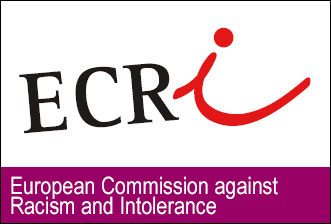Anti-discrimination bodies: recent trends and challenges
Seminar of the Council of Europe’s Anti-Racism Commission (ECRI) for national independent authorities combating racism and racial discrimination
Date: 31 May - 1 June 2012
Venue: Strasbourg – Council of Europe, Agora Building
Organised by: the European Commission against Racism and Intolerance (ECRI) of the Council of Europe
Participants: representatives of member States’ independent authorities (specialised bodies) combating racism and discrimination on grounds of ethnic origin, colour, citizenship, religion and language (racial discrimination), members of ECRI, representatives of national Ombudspersons and national human rights institutions, as well as representatives of international organisations and the European Network of Equality Bodies (EQUINET).
Topic: National specialised bodies, which have made a distinct contribution to the fight against racism, racial discrimination, xenophobia, antisemitism and intolerance in many member States, are today confronted with a variety of different challenges. Some of them have become part of larger bodies with wider objectives in the field of human rights; others’ mandates have been extended. In some countries, the fight against racism and racial discrimination is entrusted to Ombudspersons. In others, responsibility for this task is shared between Ombudspersons, newly established equality authorities and, sometimes, human rights institutions. Due to the economic crisis many of these bodies are affected, quite often in a disproportionate manner, by severe budgetary cuts, which undermine their capacity for independent action. ECRI wanted to discuss with the specialised bodies the impact of these trends on their work, with a view to making proposals for corrective action at European and/or national level.
Specific objectives: The seminar addressed the following questions:
- How do specialised bodies subject to mergers or mandate-extension ensure that the expertise they have built in the areas covered by ECRI’s mandate is not lost?
- What measures do they take to preserve the clarity of the message concerning the need to fight racism and racial discrimination?
- Are mergers accompanied by cuts? Does the extension of their mandate imply increased resources? What is the impact of less funding on their ability to undertake independent action?
- Can Ombudspersons deal with racial discrimination complaints concerning the private sector?
- How can the risk of duplication of effort be eliminated in situations where different bodies deal with similar issues?
- Is there a need for new standards to create/maintain a coherent common legal basis?
Documents



